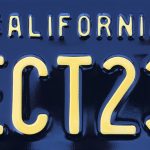
Ryanair v. Booking CFAA Trial Ends with Strangest Possible Outcome (Guest Blog Post)
by Kieran McCarthy Ryanair recently “prevailed” in its CFAA claim in its litigation against Booking.com. I use scare quotes around “prevailed” because, according to the jury verdict, the actual damages suffered by Ryanair were $5,000. $5,000 just so happens to…

Facebook Makes Some Progress Against a Scraper–Meta v. Voyager (Guest Blog Post)
by guest blogger Kieran McCarthy Companies looking to stop web scraping have suffered a losing streak in the Northern District of California recently. In February, Meta lost on Partial Summary Judgment against Bright Data on its breach of contract claim….

Elon Musk’s Gifts to Web Scrapers (Guest Blog Post)
By Kieran McCarthy Elon Musk may have done more to open the Internet to web scraping than any person or public interest advocacy group. Not that he meant to do this, mind you. He was trying to do the opposite….

Ninth Circuit Does More Ninth Circuit Things in its Latest Section 230 Ruling–Diep v. Apple
Yet another cryptocurrency fraud case. 🙄 I previously described this case: This lawsuit relates to the “Toast Plus” app that was available in Apple’s app store. The plaintiffs claim it was a spoof app designed to steal cryptocurrency worth $5k…

Court Says Twitter Misused Litigation to Punish Defendants for Their Speech–X v. CCDH
Self-proclaimed free-speech absolutist Elon Musk is notoriously thin-skinned when it comes to criticism directed at him. (As the phrase goes, “he can dish it out, but he can’t take it“). This well-publicized lawsuit is an example of Musk waging lawfare…
The Ninth Circuit’s Broad (and Wrong) Standards for Conversion–Taylor v. Google (Guest Blog Post)
by Kieran McCarthy Recently, there has been a revival of anemic trespass to chattels claims in California. And so perhaps we should not be surprised that California courts have opened the door to a resurgence in anemic digital conversion claims,…
Facebook Drops Anti-Scraping Lawsuit Against Bright Data (Guest Blog Post)
by guest blogger Kieran McCarthy There is a new most important legal precedent in the world of web scraping. Bright Data appears to have prevailed in its dispute against Meta. Last Friday, the parties stipulated to dismiss their lawsuit, with…

Think You Understand Online Trespass to Chattels Law? Think Again–In re Meta Healthcare Pixels
This is one of the many pending “Pixel” cases. If you don’t recall, a “pixel” is a 1×1-pixel image file that is imperceptible to web visitors. A website adds code to its web page that summons the pixel from a…

Game On! Bright Data Scores Major Victory in Web-Scraping Dispute with Meta (Guest Blog Post)
by guest blogger Kieran McCarthy Whether it is by accident or because of who he is, Judge Edward Chen of the Northern District of California has a way of finding himself at the center of the most important cases in…

Web Page Framing Isn’t Trespass to Chattels–Best Carpet Values v. Google
This case is an old-school turn-of-the-century throwback (and not the good kind). Google’s search app framed the web pages users visit, and the frame included ads. Some screenshots depicting the framing (the first image shows Google’s superimposed frame on the…
